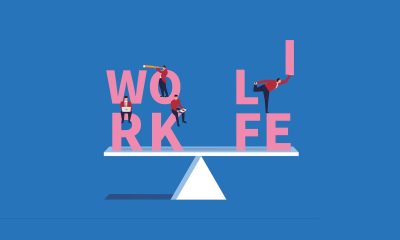Personal Finance
Some Retirees Face a 25% Tax Penalty if They Miss This April 1 Deadline

By Saturday, folks who turned 72 in 2022 must start drawing down their retirement accounts to avoid a steep tax penalty.
Required minimum distributions, aka RMDs, are mandatory withdrawal requirements that apply to all employer-sponsored retirement accounts, such as 401(k)s and 403(b)s. Typically, RMDs are required by the end of each year, but for your first RMD, you have the option to delay the withdrawal until April 1.
If you miss this RMD deadline, your late withdrawal is subject to excise tax penalties, according to the IRS. The agency also says that these withdrawal rules apply to most individual retirement accounts (IRAs) too — but not Roth IRAs.
What it means for you
If you turned 72 in 2022, you must take your first RMD from most types of retirement accounts by April 1, or face a major tax penalty on your late withdrawal.
-
According to the IRS, late withdrawals are subject to an excise tax of up to 25%.
-
Before the Secure Act 2.0 — a new law that overhauled many retirement provisions — the late RMD penalty was 50%. The new legislation also offers a way for you to reduce that penalty to 10% if the missed withdrawal is corrected within two years using IRS form 5329.
-
However, the sprawling legislation is causing some confusion this year because it raised the RMD age to 73. As the changes roll out, the IRS clarifies that if you reach age 72 in 2023, your first RMD is due April 1, 2025. But if you reached 72 last year, your RMD deadline is Saturday.
-
The exact amount of your RMD depends on several factors, including the type(s) of retirement accounts you may have and your personal financial situation.
By withdrawing only the bare minimum from your retirement accounts, you can hang on to more of your retirement savings for longer. However, experts note that most folks need more than that to make ends meet in retirement.
“Most retirees already withdraw at least their required distribution amounts to pay for normal living costs,” Howard Gleckman, a senior fellow at the Urban-Brookings Tax Policy Center, wrote. “The big beneficiaries of delaying RMDs are the wealthy who do not need retirement savings to pay expenses or their heirs.”
More from Money:
Why Some Social Security Recipients Will Get Their April Payments Early
Social Security Recipients Shouldn’t Count on Another Huge Raise Next Year
3 Moves to Make if You’re Retiring in 2023
© Copyright 2023 Money Group, LLC. All Rights Reserved.
This article originally appeared on Money.com and may contain affiliate links for which Money receives compensation. Opinions expressed in this article are the author’s alone, not those of a third-party entity, and have not been reviewed, approved, or otherwise endorsed. Offers may be subject to change without notice. For more information, read Money’s full disclaimer.
Read the full article here

-

 Passive Income6 days ago
Passive Income6 days agoThe One Microsoft Design Tool Business Owners Shouldn’t Miss
-

 Side Hustles4 days ago
Side Hustles4 days agoThe DOJ Reportedly Wants Google to Sell Its Chrome Browser
-

 Investing5 days ago
Investing5 days agoThis Founder Turned a Hangover Cure into Millions
-

 Investing6 days ago
Investing6 days agoYour Firsthand Experiences Shape the Way You Run Your Business — Here’s How Mine Shaped Me
-

 Side Hustles4 days ago
Side Hustles4 days agoHow to Create a Unique Value Proposition (With Tips & Examples)
-

 Investing3 days ago
Investing3 days agoAre You Missing These Hidden Warning Signs When Hiring?
-

 Side Hustles6 days ago
Side Hustles6 days agoHow These 5 Founders Changed Franchising Forever
-

 Side Hustles5 days ago
Side Hustles5 days ago5 Indicators Your Business Needs a Rebrand


















